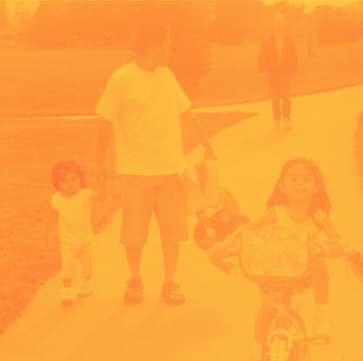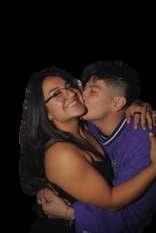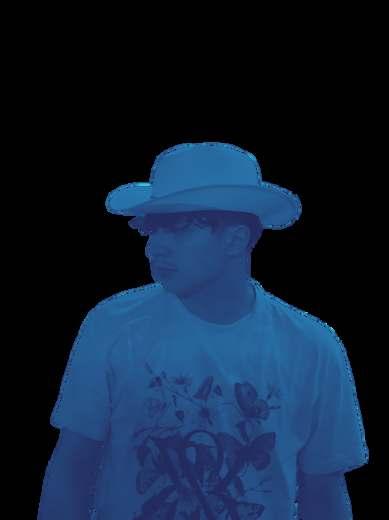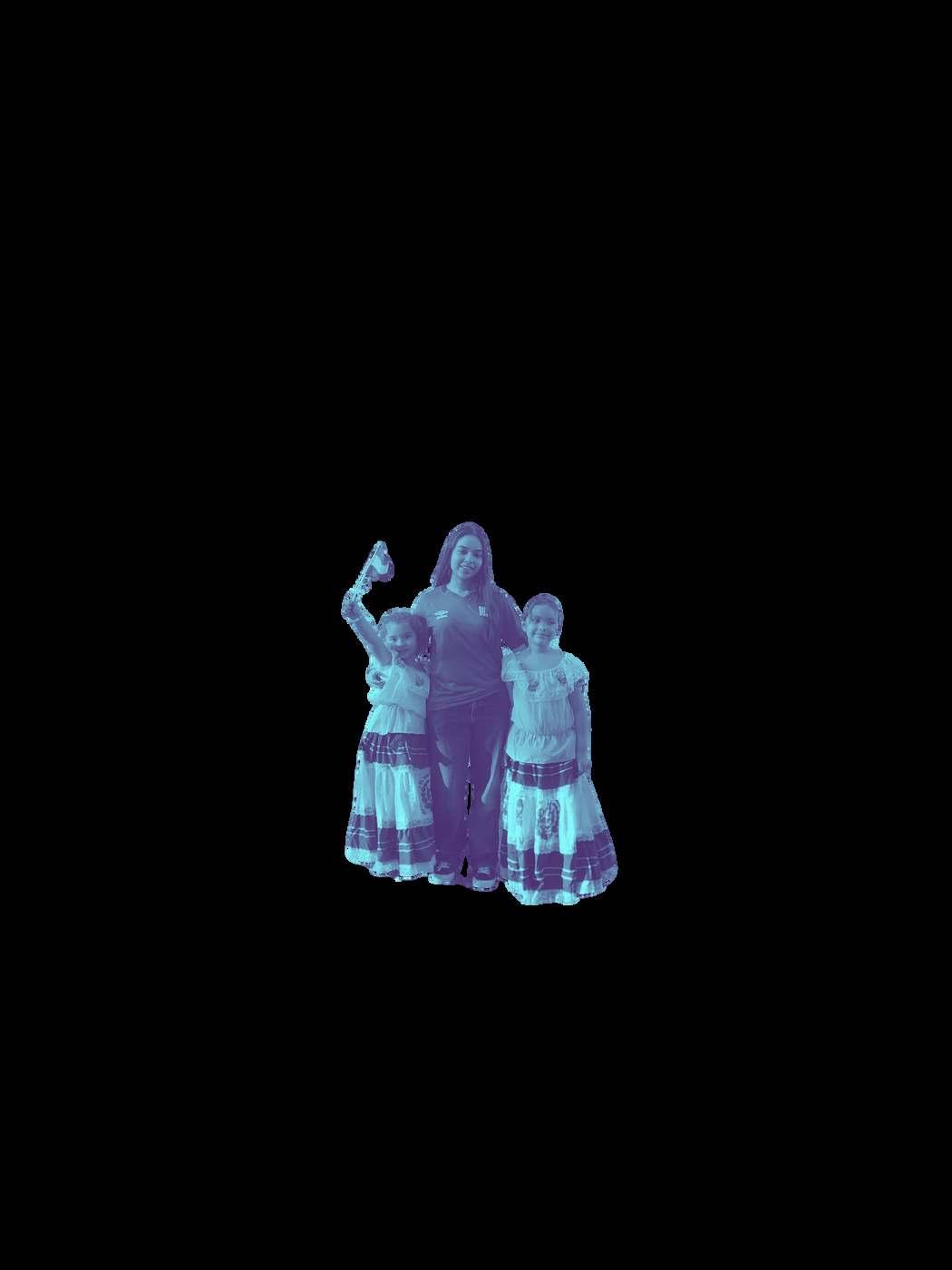

ALianZiNe VoL. iV ALianZiNe VoL. iV










MASTHEAD
EDITOR IN CHIEF
Lloxci López
MANAGING EDITOR
Chabelly Acosta
PUBLISHER
Sofia Alfaro
COLLABORATORS

ACKNOWLEDGEMENTS
We would like to acknowledge the following:

Our community-- for reminding us what we fight for.
Andrea Contreras CC’24-- founder and previous Editor in Chief of Alianzine
All of the zine contributors-- we would not have this zine without you all.
Last but not least: Alianza E-Board-- for their endless work on this project and for CU Alianza

Chabelly Acosta CC’25
Maria Cuevas - CC’26
Cecilia Zuniga BC’26
Alondra Gutiérrez CC’26
Frank Garcia - CC’27
Andrea Lopez Abarca - BC’27
Alejandro Gomez - CC’27
Frank Garcia - CC’27
Andrea Lopez Abarca - BC’27
Raul Cantu - CC’27
Arturo Saith Samano - CC’27
Ana Morales SEAS’28
Sofia Alfaro BC’28
Santiago Castaño-Medina CC’28
Table of Contents
Table of Contents

“Entre miradas, seguimos aqui”,“Nuestra Alegría Es Rebeldía”, y “Mamá, Lo Logramos” by Chabelly Acosta
“Siempre Conectados” by Vanessa Ajualip Hernandez
“Memories” by Sofia Alfaro
“Following the Monarchs,We Thrived” by Laura Avila
“Quadrennial Lament” by Reesa Calderón Venterea
“Resistencia y Raíz” by Ariana Bane
“Mi Alianza” by Raul Cantu
“Ponte las Pilas Siempre” by Arturo Saith Samano Jr.
“La Interconexión Entre tu Identidad y tu Nombre” by Jade Rosalia Capellan Cruz
“Criollos” by Isaac Carrión Ortiz
“Implacable” and “Sombrero” by Santiago CastañoMedina
“A Legacy of Dreams” by Cristian Cortes
”My Sister's Keeper” by Lindsey Cruz Rosales
“Caña dE mi Sangre” by Jasmine Diaz
“Bien Norteño” by Francisco Garcia
“Mi Tita” Alejandro Gomez
“Entre miS Padres Y yo, somos uno” by Alondra Yogemary Gutiérrez Arana
“La Justicia es como la serpiente solo muerde a los descalzos” by Andrea Lopez Abarca
“Unspoken Company” and “Variation on Company” by Emilly Gonzalez
“Taking Up Space” by Frankie Luna
“Rooted in Sacrifice, Growing In Resilience” by Kimberly Mendez
“Mi Cara Parcelera” by Ana Morales Ortiz
“Hasta La Raíz” by Kate Osorio
“Solidarity in American-Born Generations” by Andrea Ruiz
“Entre Pieles Y Palabras” by Kimberly Villalta
“¡Despierta Pueblo, Defiende Lo Tuyo!” by Cecilia Zuniga

Letter from the Editor Letter from the Editor
For the last couple of years, I have contributed to the zine and have helped with editing, publishing, etc. Now that I have been overseeing this project, everyone's submissions– from pictures to projects to poems and more– overwhelmed me with many emotions. Even when living through such unprecedented events, I am reminded that I am surrounded by a resilient community– a community that cares for one another and fights for justice.
Our theme “Seguimos Aqui” builds on the themes of our previous zines; “Lucha” and “Archive”. We wanted a theme that highlighted what is most important to our community. Our community is facing intense attacks from the U.S. government. The time to act is now.
Bad Bunny released his short film, “DeBÍ TiRAR MáS FOToS” and it was clear the impact it had, not only for Bad Bunny fans, but for Latinos across the diaspora. In the short film, one of the patrons at the cafe tells legendary Puerto Rican filmmaker Jacobo Morales, “Seguimos aqui” and although a short phrase, highlighted a huge issue that has been facing our community for centuries and still is so today. When I think of Seguimos aqui, I think of everyone who has preserved. I think of our ancestors who fought off the conquistadors. I think of migrants who sacrifice everything to have a better life for themselves and their family. I think of communities across Latin America and beyond facing gentrification and displacement. And I think of my peers. The government tries to silence us. But no matter what is thrown our way, we will not leave.
Alianza made this zine not just as a showcase of all the brilliant Latine minds at Columbia and beyond, but also as a call to action. The photos, projects, regalia, trinkets, and more are acts of resilience. They make our presence loud and everlasting. And no one can take that from us.
Seguimos aqui. We will always be here.
El pueblo unido jamás será vencido.
Lloxci López Editor-in-chief’25



Chabelly Acosta Chabelly Acosta
“Entre miradas, seguimos aqui”
El Gringo que Nunca Deja en Paz:





Siempre Siempreobservando observandoSiempre Siemprepersiguiendo persiguiendo

“Nuestra Alegría Es Rebeldía”




osta Aco Acosta Acosta









“Mamá, Lo Logramos
A veces pienso en el fenómeno maternal — el privilegio absoluto de haber estado contigo desde el primer día de tu vida. Aunque tú aún no lo sabías, yo ya era parte de ti. Te acompañé cuando subiste a ese avión rumbo a la “tierra de los libres”, ilusionada por el sueño Americano, apostando todo a una oración que te salvara, y que un dia nos

No sé cómo lo lograste. Hoy, navegando mis veintes, tengo miedo. ¿Así te sentías tú? ¿Así te sentiste al dejarlo
llamado de Dios y una visión
En mis momentos de confusión, pienso en ti. Porque así como yo anduve contigo, tú andas conmigo. En cada rincón de esta universidad, y en cada paso que doy, te siento cerca. No pasa un solo día sin que lleve dentro de mí tu fuerza, tu sabiduría y tu

Querida Mami, tu Bell

Tu lucha corre por mis venas.
Tu lucha corre mis venas. Eres la raíz de todo mi ser. Eres la raíz de todo mi ser.
Y en la semilla que dejaste en mí, florece nuestro éxito. Mis logros son tuyos. Yo soy producto de ti— de tus oraciones, tus sacrificios, y tus noches sin dormir. En mayo, nos graduamos de una de las mejores universidades del mundo. Y pronto, cruzaré el océano para seguir un nuevo camino inimaginable.
¿Quién lo hubiera imaginado?
Una mujer que llegó sola, sin inglés, sin red de apoyo, solo con fe.
Tus hijas caminan ahora en espacios que antes no eran para nosotras, con tu nombre en el pecho, con tu historia en la piel.


Dios hace lo imposible posible. Y todo, absolutamente todo, empieza contigo.
Te elegiría como mi mamá en cada una de mis vidas.
Te amo con todo mi ser.
Con amor eterno,




Vanessa Ajualip Hernandez Vanessa Ajualip Hernandez
Nashville, TN | guatemala CC’25
“Siempre Conectados”
My parents and I are inextricably connected in a way that is hard to explain to the world. The youngest and only child left to fill our home, I grew up to be their chicle, clinging to them, trailing their every step.
As a child, I understood that our time together was never promised. I would follow them to the ends of the Earth if I had to. But, I no longer fear our separation, for their legacy pulses within me. We are forever entwined.







Seguimos luchando, and if the day comes when they must leave, seguiran aqui because they will not have vanished without a trace. They will remain in the city they helped build, the community they nourished, and the Ivy League halls where their daughter shattered barriers…so that others in our family may walk through the doors she left open.


Sofia Alfaro Sofia Alfaro
Durham, NC | El Salvador
BC ‘28
Memories “Memories”
As time goes by, memories are created by time spent with family, friends, and moments that are important. But also, our memories change our perspective and how we move around the world.










this, though it doesn't anymore.

Laura Avila Laura Avila
Fayeteville, AR | Bolivia SEAS ‘28
This piece is a reflection of my family’s journey—our migration to America, the struggles we faced, and the home we built. The girl in the painting is my twin, Ale, who represents not just herself but all of us who have had to navigate change while holding onto who we are. The monarch butterflies, like us, have traveled far, adapting and transforming along the way. The flowers surrounding her are a reminder of the beauty that comes from resilience and finding a place to grow even in unfamiliar soil.

“ Following the Monarchs , We Thrived ”



Reesa Calderón Reesa Calderón
Venterea Venterea
Minneapolis, MN | Mexico
CC ‘28
i believed the power of choice would take this dead end away please take me away from whatever pathway of deadened grief we are now departing for my sisters, my furies and foes please see through these insentient promises and shallow efforts to reconstruct a coast that has never lived in the glucose of our blood please cut out my name from this legacy
there lie a lens of ascension into homogeneity, of cruelty, a stance of crumbling corners, of what makes these buildings our histories.

now such concrete will be a weapon to erase future histories of joy, so please breathe life into the bricks you can’t wait to tower
so easily i want to degrade its my second nature to fall to a cascade of judgement and blame and stalemating disapproval please i beg of myself not to other the other that is grounded in the othering of all

quadrennial lament:
quadrennial lament:
pleading the seedling I only know
i'm transpired and transfixed by a deadly manufactured figurine of hatred, please take away but please make away light from this chaos, choose a belonging, even a wisdom, the efforts for feeling that i fear my motherland will grow numb to please don't lose feeling, oh dear
our bandwidth of love must now succumb to his breadth of ignorance and breath of ice y demoralization please let us be let us crawl let us scrape together the fight you've already abducted from our genetic makeup
don't mention our tongue, our vulvas of vivacity and vibrancy don't you dare speak fear into the neighbors that we finally just got to brave these hills please resist the feeling to accept please don't bow to the choice of the majority
as soon as we memorialize the past wits and grit of our strength we’ve given up

so peruse me and fuel the attestation that this is not our new home
Ariana Bañez Ariana Bañez
El Paso, TX
BC’27
Resistencia y Raíz

Siempre hemos estado aquí, en nuestras historias, en nuestras pieles, en el eco de lenguas que resisten aun cuando quieren borrarnos.
Venir de la frontera es vivir entre dos latidos, es habitar un hogar sin límites, es sentir el polvo del desierto y el vaivén del río en la memoria.

Pero lejos, el eco se vuelve susurro, el español se desgasta en la lengua, las esquinas son extrañas, y la casa ya no es casa.
Nueva York no es la frontera, pero es otra línea, otra lucha, otra tierra donde nos buscamos en rostros que llevan el mismo duelo.
Nos encontramos en la lengua compartida, en la comida que sabe a madre, en la música que canta a casa, en la risa que desafía el olvido.
Ser mujer latina es resistir, es llevar la historia de quienes cruzaron, de quienes soñaron y sangraron, es sostener la esperanza con manos heridas.
Ser mujer latina y americana es caminar dos veces contra el viento, es desafiar fronteras dentro de fronteras, es amar con rabia y ternura, es gritar cuando nos quieren en silencio.
Nos quieren invisibles, nos quieren borradas, pero estamos aquí, en cada historia, en cada espacio, en cada amor, en cada lucha.
La frontera no nos define, porque somos río, somos viento, somos manos que construyen, somos voces que no callan.
Y mientras nos sigamos encontrando, mientras sigamos amando, mientras sigamos resistiendo, seguiremos aquí.
To be a woman, to be Latina, is to carry generations of strength, survival, and defiance within us. Resistencia y Raíz speaks to the unshakable presence of Latina women in a world that too often seeks to silence us, to erase our stories, to make us feel like we do not belong. But we do. We have always been here.
Moving from the borderlands of El Paso to a place like New York is not just a journey across geography but across identities, across histories. It is a reminder that our culture is not confined to land—it lives within us, within our voices, within the stories we carry and share. No matter where we go, we find each other, we create home in each other.
This piece is a declaration: we are not invisible. We are not silent. We resist in every word spoken, every memory kept alive, every space we claim as our own. As long as we exist, we choose resistance.





Raul Cantu Raul Cantu
San juan, TX | mexico

This image represents the people who I care most about in this world—my parents. They are symbols of continuity and longevity carrying decades-worth of memories, struggle, determination, and love. Ellos siguen aquí luchando por la vida que se merecen como los millones de inmigrantes que luchan por lo mismo.

Y por final: el pueblo unido jamás será vencido!
Mi Alianza


Being their only child I have felt every ounce of love, care, and selflessness they possess, and, as my role models, they have taught me that we must continue to fight for those that we love because… to love is to resist. Their presence in the US, a supposed land of the free, is a testament of the sheer, indispensable value an immigrant brings to the prosperity of this country. Immigrants like my parents are beacons of love, hardwork, and determination. They are the foundation of this country.



Arturo Saith Samano Arturo Saith Samano
“
pONtE laS PiLas siEMpre
”
Seguimos aquí, not by strength alone, but through each other. That’s what ponte las pilas means. Not just pushing forward, but letting others carry you when you can't. Chicago,
Ponte las pilas cuando quieres más.
I hear those words every day. They were my cousin’s last to me, a reminder that became a lifeline. when I lost him 5 years ago. on 04/7/2025, I lost his mother, my Tita, too. I’ve been trying to hold that pain, but I’ve realized I’m still here because of the people who held me.


Seguimos aquí. And I won’t stop.















“
Jade Rosalia Capellan Cruz
Jade Rosalia Capellan Cruz
Bronx, NY | Dominican Republic
La
Interconexión Entre
”
tu
Identidad y tu Nombre
People often go quiet, trying to understand what I just said. Ha-de: That is the correct pronunciation of my name. In hopes of assimilating into the Western lifestyle, I was forced to take on a whole new name and, with that, a whole new story. I missed my family's culture, traditions, and customs that came with my name. I began to feel like I didn’t belong anywhere, leaving me to choose between my two worlds. Two names, two worlds, two stories. My name holds so much of my identity. It showcases the beauty and hardships of my life, my culture, my native language, and my love and expectations for myself. Names are often the first part of a person's identity you get to know.

This necklace and ring were given to me by my mother, both on significant events of my life: my Quinceañera and my High School graduation. Directly brought from my motherland, these pieces of jewelry are not only a symbol of where and how I grew up, but also how I choose to reclaim my name. I will never forget what my mother told me as she gave me each piece of jewelry -




"Jade nunca olvides que aunque no tengas nada tienes tu nombre y con eso lo tienes todo.”




Isaac Carrión Ortiz
Isaac Carrión Ortiz
San Juan, Puerto Rico
“Criollos”


Mi familia materna lleva tantas generaciones viviendo en Caguas que el chiste corriente es que somos descendientes del cacique Caguax.

Mis abuelos le inculcaron los mismos valores de esfuerzo a mi mamá, quien me crió por su cuenta a la vez que trabajaba como internista.
Estos han sido los maestros, ingenieros, agricultores, médicos que construyeron a Puerto Rico con sus propias manos, de abajo pa’ ‘rriba. Y lo continuaremos haciendo porque seguimo’ aquí.

Los padres de mi abuelo trabajaban en escuela pública, mientras los de mi abuela trabajaban en una finca de tabaco. To’s fajones, gente humilde. Boricuas de pura cepa.



Puerto Rico NO SE VENDE. Puerto Rico NO SE VENDE.
Puerto Rico NO SE VENDE. Puerto Rico NO SE VENDE. Puerto Rico NO SE VENDE. Puerto Rico NO SE VENDE. Puerto Rico NO SE VENDE. Puerto Rico NO SE VENDE.
Puerto Rico NO SE VENDE. Puerto Rico NO SE VENDE.
Puerto Rico NO SE VENDE. Puerto Rico NO SE VENDE.
Puerto Rico NO SE VENDE. Puerto Rico NO SE VENDE.
Puerto Rico NO SE VENDE. Puerto Rico NO SE VENDE. Puerto Rico NO SE VENDE. Puerto Rico NO SE VENDE.
Puerto Rico NO SE VENDE. Puerto Rico NO SE VENDE.
Puerto Rico NO SE VENDE. Puerto Rico NO SE VENDE.

Santiago Castaño-Medina
Santiago Castaño-Medina “IMpLacAbLE
”
My mom graduated high school at fifteen, college at twenty. By all measures, she was a genius.
But, America didn't think so.
Her degree, to employers, was worthless. Her coursework was a joke. Her experience was not valuable.
Not one to be limited, my mother went to college AGAIN while simultaneously raising a child. She would work during the day and go to class at night. She kept this up until she earned her master's degree in 2021.
Her diploma is a testament that she can do it


“
soMBrerO
”
inicialmente creado para proteger a nuestros ancestros del sol mientras trabajaban, hoy el sombrero es un símbolo cultural de nuestros países.
afortunadamente, yo ya no tengo que trabajar en una finca. cuando estoy en el sol, puedo ponerme protector solar. puedo usar unas gafitas.
pero me pondré el sombrero, para mantener la cultura que sí sigue aquí.
en la foto están mi papi cheche y mi mami martha. mis abuelitos. él lleva el sombrero puesto, y yo? pues yo nunca me lo quitaré.




Cristian Cortes
Cristian Cortes “A Legacy of Dreams”
Pictured are the generations within my family who cultivated dreams that have transcended borders. My papa Juan (abuelito, papá de mi mamá) was the first to dream of coming to this country. Humbly, he landed a job as a chef and was adored by many customers who spoke of his work ethic and hospitality. Mama Cristi (my abuelita) later joined him and navigated the complexities of a new country on her own while my abuelito worked. She craved adventure and found it by conquering the daunting Los Angeles public transit system, leaving her mark wherever she went. Together, they are trailblazers and inspirations to many in my family.



My dad's parents (abuelito Rubén and abuelita María), who are pictured together, had a large family in Mexico. They raised their children to be respectful, compassionate, and hardworking. Their children—my tíos and tías—have found great success in this country on both micro and macro scales. They accomplished their dream of raising exemplary children, and the legacy of their parenting has lived on and will continue to do so for generations.



Los angeles | mexico
My parents each grew up in Jalisco, Mexico, in loving families. Despite not having much, they had ambitions that filled their appetite and gave them tremendous will —a will to prevail and find courage despite harsh conditions and widespread instability. Both, having only an elementary school education, raised us to value knowledge and opportunity. Now, I can proudly say that my siblings and I have all pursued higher education.
Thanks to the dreams of everyone above, I sit here, lying in my dorm at Columbia University, filled with my own aspirations and goals. Their dreams breathe life into me and fuel my desire to continue thriving despite harsh circumstances. I will continue to chase after my dreams in their honor. Dreams are a testament to our presence—a tangible way to take up space in a country that often seeks to invisibilize us.




Seguimos aquí, and as long as we are, we will continue to dream.




Lindsey Cruz Rosales Lindsey Cruz Rosales
Westbury, NY | El Salvador SEAS ’25
My Sister's Keeper
Being born in New York has never felt at odds with my identity as a Salvadoran. I grew up in a vibrant community whose population ranged from central american, to caribbean and African - where ALL of our roots were highlighted and celebrated. Columbia has been difficult, not simply due to the lack of Latinos, or Central Americans, but the lack of cross-connections I was so used to at home.




As a first gen graduate, I understand that my presence here serves not just as an example, but a bridge. Upon leaving I will be leaving the door open behind me, for my community members, my cousins and especially, my younger sisters. Without them I would never have made it this far. My journey is simply a stepping stone for theirs. They are the next generation, they will continue to show the world that we are still here.



Jasmine Diaz Jasmine Diaz
Miami, FL | Cuba
CC’28
“CAña dE mi SaNGre”

Caña de mi Sangre is a statement piece that seeks to explore the exploitative industry of harvesting sugar cane. Sugar cane, or caña, is the principal agricultural export of Cuba, and amounts to about a quarter of their yearly export revenue. Yet, the way in which workers must adjust their bodies to harvest it leaves a permanent damage, twisting their backs in the sweltering heat to make ends meet.








I wanted to capture the beauty and intricacy of the cane through the bodice and bright colors, while almost concealing the twisted spine on the back that results from this labor.



Francisco Garcia
Francisco Garcia
Tamaulipas, Mexico
“BieN NOrtEño”
My dad, Francisco Garcia, was raised in a small border town in Mexico, Nueva Ciudad Guerrero, Tamaulipas. At a young age, he taught himself to play the drums with an old drum pad and some worn-out drumsticks. Even though school was necessary, he followed his heart and joined a Norteno Group called Grupo Costumbre. Till this day, my dad has been part of this group for around 25 years. He went from growing up in one of the smallest towns in Mexico to earning a Latin Grammy for best Norteno Album in 2009.






My dad is my biggest inspiration as he has taught me how vital Latin music is for representing our culture in modern times. He constantly reminds me that no matter where I am or where I strive to go, my Latin heritage will always be irreplaceable and will guide me towards success. His life is a testament to how our stories and cultures continue to thrive despite the odds, just as Latin music has endured and found its place in the global spotlight.




Alejandro Gomez Alejandro Gomez
“Mi TitA” Westchester/Colombia
This is my grandmother Teresa. She immigrated here in the 1980s shortly after my grandfather, Hector, came to the states as well. She began to work in a hospital as a lunch lady, and provided for her whole family back home.







Eventually my mother, Luz, came as well, and she also began to work after high school. Shortly after this, my grandfather died and only my grandmother and mother were left in the US. I admire them for being so hardworking and for having so much love and pride for their family. They taught me to not be afraid to adapt to change and embrace every opportunity I’m given. Without these strong women, I wouldn’t be who I am today.
Alondra Gutiérrez Alondra Gutiérrez
Bridgeport, CA/Chih, México
PaDres Y yo, sOMos

Since November 5th, I no longer forget to place the tilde on my last name.
Since I moved to the U.S. at 12, in my anxious effort to assimilate, I’ve quietly surrendered essential parts of myself. By the time I entered high school at 14, my accent had softened into something unrecognizable.

Last month, I was asked to conduct interviews to craft my very own family genogram, exploring migration, assimilation, and the nuances of language loss and acquisition.
I still struggle to shape my trauma into words. Between my parents and me, there is a silence—an absence of words we struggle to communicate. I now find myself caught in the space between two languages, between two cultures, unable to fully articulate who I am in either tongue. This is my attempt at breaking the silence.
I wanted to dedicate this space to shed light on my parents’ experiences, and make it known that stuck between ni de aqui ni de alla, nosotros somos una sola pieza.


Para mis papitos, Siempre he estado orgullosa de ustedes. Soy quien soy por ustedes y para ustedes. Su sacrificio no sera en vano. Ya que estamos aquí, voy por todo. Hoy en día, más que nunca, me siento tan orgullosa de donde vengo. A ustedes les dedico todas mis batallas y logros. Estoy orgullosa de pertenecer a una familia luchona, que no le tiene miedo al triunfo. ¡Seguimos aquí, y seguiremos aquí haste cuando se nos de la gana! Su resistencia es la mía hoy y siempre. Los amo <3
Do you ever feel caught between two cultures? How do you manage that balance, especially now that you are living in different places (Mexico and the U.S.)?
Mamá: “Si. Algunas veces siento que no pertenezco a ningún lado, no puedo hablar o ver con frecuencia ni a mi familia, ni a mis viejos amigos. Aqui no me he sentido realmente incorporada. Pero, continuamos sacando adelante nuestros objetivos, manteniendo la familia y que todos nuestros miembros se encuentren bien en todos los aspectos. Buscamos seguir aprendiendo para mejorar nuestra situación actual”.




What role did language play in your adaptation process?
Papá: “Idioms, slang, and regional accents were a constant source of confusion. I'd often find myself smiling and nodding, hoping I wasn't missing something important. Understanding humor was particularly challenging. Sarcasm, irony, and wordplay often went over my head. I had to learn to pay close attention to tone and context”.
How did migrating in your 40’s impact your emotional and psychological well-being? Were there any lasting effects from the immigration process that shaped your outlook on life?
Papá: “The uncertainty of starting over, the financial pressures, and the constant need to adapt created a high level of stress. My sense of identity has changed. I've had to redefine who I am, to integrate my past with my present. This process has been both challenging and transformative. There were moments of feeling that I was not the man that I used to be. The transition from businessman to server was very humbling”.

Mamá: “La edad, la dificultad para memorizar y la salud, se convierten en parte preocupante y prioritaria. Porque sabes que no puedes perder el tiempo en cosas vanales, debes mantener y sacar adelante una familia, y buscas dejar un patrimonio y tomar las mejores decisiones. Por otro lado, es frustrante recordar que tienes estudios profesionales pero tus hijos te ven trabajando como chef o como mesero, son trabajos muy buenos y son dignos pero, no hay congruencia con tus planes del pasado y sobre todo cuando quieres alentar a tus hijos para continuar estudiando, aprendiendo, obtener su título universitario y que trabajen en su área profesional”.






la justicia es como la serpiente solo muerde a los descalzos ”
American barrio, mi Tía Luz who lives downstairs was my catequista.
Another year, it was some ex-addict lady who told us stories about seeing Jesus days before her sister died of cancer. It was Jesus who told her to get clean.
I was once with a Honduran catequista named Saul. He told us about former students who disappeared after messing with MS-13. It was a fear of his for the boys in our class as we got older.



Archbishop Óscar Romero was declared a Catholic saint in 2018—just in time for my confirmation. For the first time ever, Salvadoran boys could choose a Salvadoran saint as a confirmation name.
St. Óscar Romero, a powerful voice for the poor and marginalized, stays with me—his image on a keychain I carry, reminding me of my origins. It all feels familiar.
I didn’t like waking up early on a Sunday morning. But I loved stopping by “donki donas” with mi Tio Ricarte.
I liked entering the building and seeing church ladies selling pupusas and Capri suns before class started.
La monja made morning announcement and kids wiped the salsa roja off their

Seguimos aquí en Massachusetts. Seguimos aquí comiendo pupusas, aunque nos muerde la serpiente.



Lynn, MA | El Salvador



by Marc Rudin (Jihad Mansour)


Emilly Gonzalez Emilly Gonzalez
Inspired by Rita Dove, who perfectly executed a blend of truth, emotions, and family history in her poems, I wanted to try writing a poem about my grandparents and the relationship I've witnessed between them. I really only interact with them through my memories because they live in Colombia. Thus, my poems are heavily influenced by my observations from my visits, and I tried to express their feelings and thoughts. “Unspoken Company” speaks to my grandfather Alfonso’s experience, and “Variation on Company” speaks to Marina’s, my grandmother’s.

Unspoken
Company




The living room 3 seater couch is only used by guests. He prefers to sit in his wooden chair by the entrance to the house, with the door open to feel the cool night breeze in the comfort of his home.
The chair perfectly faces the box TV. Tunnel Vision.
He’ll click through the news programs until he finds a good soccer match to watch. He touches the remote more than he touches her.
He has so much to say but no one to talk to and so he sits in silence. Unspoken intimacy between him and the box TV and the open door and her.
He mumbles as he imagines his grandchildren on the 3 seater. Invisible company there with him, except for when they are there, they mumble back.

VariAtiOn oN COmpAny

She can hear her bird in the back patio when her window is open. She ruffles her feathers and roams in the safety of her cage.





Frankie Luna Frankie Luna
Columbus , New Jersey | Mexico CC’28
“TAkiNg Up SPAce”
Applying to a selective school during the post-affirmative action era scared me.
However, once I was accepted into Columbia, many who did not belong to marginalized communities criticized my acceptance and stated that it was because of affirmative action—but how could that be since it was illegal?
I did not let those who envied my success take away from MY moment. I had realized that I did not get into Columbia only because of my intellectual ability, but because I had a story that Columbia students were not exposed to everyday.

I am the son of Mexican immigrants. I am a first-generation college student. I am a fieldworker.



These experiences shape who I am and deserve to take up space in the Columbia community. Seguimos aqui.
I included a picture holding the same flower that my dad is holding which is the Dahlia--Mexico's national flower because of its history in the Aztec culture.





Kimberly Mendez Kimberly Mendez
Long island, ny, |
El salvador & guatemala bc’27
“RoOted in SAcriFice, GrOWing iN ResiLiEnce”




These are pictures of my parents working at the greenhouse where they first met, just a five-minute walk from my childhood home. The same greenhouse that was later bought out and fired all its undocumented workers.
"Estudia duro para que no termines "Estudia duro para que no termines trabajando en el sol." trabajando en el sol."
My parents' heatstroke and total body pain were central to my childhood memories.
Growing up in a migrant worker family meant learning that exhaustion wasn’t just physical, but instead it was generational. Passed down through sweat-stained clothes and aching hands, it transformed into imposter syndrome and relentless studying.

We are told to work hard so we don’t have to struggle the way they did, but even in different spaces, the struggle continues. However, from our parents, we also inherit their drive, dignity, resilience, and unwavering determination.




Ana Morales Ortiz Ana Morales Ortiz
Dorado, Puerto rico Seas’28
“Mi CAra PaRCeLera”
My grandmother (the girl with the flower crown), grew up in the backyard of another family’s parcela (pictured).
Parcelas, small land plots, were given to farmers around Puerto Rico as a reform project. My grandmother’s family, our family, was too poor to qualify for one.
Regardless, this reform project quickly became unsuccessful, as the colonial Operation Bootstrap legislature caused living outside the metropolitan area -- where most parcelas were handed out –- impossible.



Unemployment rose around the island, and many Puerto Ricans were forced to leave for the United States, starting the still ongoing Puerto Rican diaspora.
Working two jobs, she fought to stay, even if she had to move from Mayagüez to Santurce.
I have her face, and when I look at myself in the mirror, I understand I must fight to stay, too.

My grandmother stayed on the island, and my mother, and now me.



“HaSTa La raíZ” Kate Osorio
Kate Osorio
Roselle, NJ | Mexico

Seguimos Aquí
in my abuelita’s kitchen, where the scent of her pan colorado fills the air.
Seguimos Aquí with mis tías—Ana, Ruth, and Edith—who left their childhood behind the moment they crossed the border, stepping into an unknown future
Seguimos Aquí
in the stories my abuelito tells of life back in Mexico, each one a thread weaving together the past and present.






I may not have been born in Mexico, but I have lived it, breathed it, and carried it within me through my family. I am “Colombmexicanamericana,” as my abuelita, Neida, calls me—a name that holds the weight of migration, love, and belonging. It does not make me any less Mexican, any less Colombian… It makes me whole.
I dedicate this to my tías and abuelitos, who through their love, support, and lessons have made me into the person I am today.
As the first Osorio to go to college, I will carry them with me, hasta la raíz, into new places where the Osorio name has never been before.
Andrea Ruiz Andrea Ruiz
Edison, NJ | Colombia
CC’ 25
“Solidarity in American-Born Generations”
There is strength in finding people who understand your culture and what it means to be Latina in the US.
We will continue to persevere and preserve our identities even when it seems we should be ashamed of them.






Latinidad is so beautiful and we should never stop celebrating in community.
Kimberly Villalta Kimberly Villalta
Houston, TX | El Salvador
bc’27
“ENtre piELes Y pALabrAS”






En las fotos de mi niñez, soy la niña blanca entre familia de piel más oscura, la chelita. Demasiada chele para ser salvadoreña, pero con un acento muy marcado para ser americana. Fui demasiada chele para mi comunidad, pero nunca entendía suficiente inglés. As I learned to assimilate into Englishspeaking schools, I began to lose my Spanish. And now, as I reconnect by majoring in Spanish, I’m slowly losing my English. Always in-between, stuck between being Salvadoran enough for my family and American enough for the world outside. These photos are fragments de mi historia, de mi familia, de la manera en que yo existo.

Cecilia Zuñiga Cecilia Zuñiga
“¡DEspieRTa PUebLo, DEfieNDe Lo TuYO
!”

El Barrio is home to many things I love — fritura, cars blasting old-school salsa, my amazing roommate, and also CENTRO, The Center for Puerto Rican Studies at Hunter College. I got these photos from CENTRO’s archive, which stands as testament to the vastly rich experiences of Boricuas across the diaspora andthearchipelago.


These photos are clipped from a pamphlet created by El Comité M.I.N.P. (Movimiento de Izquierda Nacional Puertorriqueño) for their First Assembly under a new name in November 1978. El Comité was a grassroots militant and socialist organization in New York City led by working-class Puerto-Rican activists in the 1970s. They were born organically out of protest against the city's urban renewal programs which widely displaced Black and Latino residents by replacing lowincome housing with high-rise developments.



Metuchen, Nj |
Puerto Rico & Mexico bc’26
In the face of real estate greed and city neglect, El Comité engaged in a radical act of “Seguimos Aquí.” In 1970, their “Operation-Move In” was a militant reclamation of vacant housing stock on the Upper West Side and Morningside Heights. Puerto Rican tenants and community activists launched a squatters’ campaign, taking over nine buildings slated for demolition and occupying them to demand affordable housing, neighborhood autonomy, and oppose the widespread removal of low-income, mostly Latino residents from their homes.


People power works. El Comité only gained more community support after 1970, and many of the buildings occupied during “Operation Move-In” were turned into low-income housing co-ops, not high-end apartments.
Que recordemos nuestras raíces revolucionarias, aquí en la diáspora y allá en la isla.
Que viva Puerto Rico libre.
Que sigues defendiendo lo tuyo.


